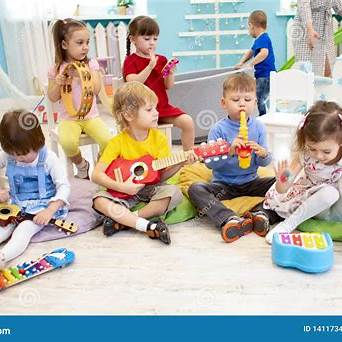Unlock the Magic of Music: Why Learning Piano Is Easier Than You Think
- arun mcgoay
- Jan 29
- 4 min read
Have you ever dreamed of your child effortlessly gliding their fingers across the piano, creating beautiful melodies? For many parents, the idea of enrolling their child in piano lessons can feel daunting. Common concerns like, “Will they find it too hard?” or “What if they don’t stick with it?” can overshadow the excitement of starting. But here’s the good news: learning piano today is easier than you think!
Thanks to modern teaching techniques, approachable resources, and passionate instructors, piano lessons have transformed into an engaging and accessible journey. Whether your child is shy, ambitious, or somewhere in between, unlocking the magic of music through piano is more attainable than ever.
The Easiest Instrument to Start With
Many parents don’t realize that piano is one of the most beginner-friendly instruments to learn. Unlike string instruments (like violin) or wind instruments (like flute), which require intricate finger placements or breath control, the piano’s layout is straightforward. The keys are visually aligned in a pattern that makes it easier for children to understand musical concepts.
Instant Gratification: A simple press of a key produces a clear, beautiful sound, even for a beginner. This immediate feedback encourages children to explore and experiment.
Logical Design: The piano’s black and white keys help students recognize patterns and scales visually, reinforcing their understanding of music theory as they progress.
Breaking Down Barriers: Modern Teaching Techniques
The days of dull, monotonous lessons are long gone. Today’s piano instructors understand that children learn best when they’re having fun. Modern teaching techniques are designed to engage young minds and foster their love for music.
Interactive Learning: Many lessons now incorporate games, apps, and multimedia tools that make learning feel like playtime.
Step-by-Step Progression: Teachers start with simple exercises, like learning familiar tunes or clapping along to rhythms, to build a child’s confidence gradually.
Tailored to Each Student: Lessons can be customized based on your child’s personality and goals, ensuring they never feel overwhelmed or bored.

Piano Lessons Build Skills That Go Beyond Music
For parents who are keen on academic success, piano lessons offer far more than just the ability to play music. The discipline, focus, and cognitive development gained from learning an instrument translate into real-world benefits.
Boosted Brainpower: Studies have shown that learning piano strengthens memory, enhances problem-solving skills, and improves math abilities. These benefits can give your child a significant edge in school, especially in challenging exams like the 11+.
Improved Focus and Patience: Mastering a piece of music requires concentration and perseverance – qualities that will serve your child well in academics and beyond.
Enhanced Creativity: Piano lessons encourage kids to think outside the box, as they learn to interpret music and even compose their own pieces.
Your Child Doesn’t Need to Be “Gifted” to Succeed
A common myth among parents is that only naturally talented children excel at the piano. The truth is, with consistent practice and the right guidance, any child can learn to play and enjoy the piano. Passion and patience often outweigh innate talent.
Consider this:
A Growth Mindset: The beauty of piano lessons lies in the process of learning. Every small milestone – from playing a simple tune to performing in a recital – builds your child’s confidence and resilience.
Practice Makes Progress: Piano isn’t about perfection; it’s about progress. Your child doesn’t need to be a prodigy to enjoy the journey.
How to Support Your Child’s Piano Journey
As a parent, you play a crucial role in fostering your child’s love for music. Here are a few ways you can help make their piano journey smooth and enjoyable:
Celebrate Small Wins: Acknowledge every achievement, no matter how small. Whether they master their first scale or complete a short song, your encouragement will motivate them.
Create a Practice Routine: Consistency is key. Encourage your child to practice regularly, even if it’s just 15 minutes a day.
Make It Fun: Listen to their favorite music together, attend piano recitals, or let them experiment with composing their own tunes.
Real Stories, Real Results
One of our students, Emily, started piano lessons at the age of 8. Initially, she was shy and hesitant, but after just a few weeks, she surprised her parents by performing “Twinkle Twinkle Little Star” at a family gathering. The confidence she gained from this small performance has carried over into other areas of her life, including her schoolwork and social interactions.
Your child could be the next Emily. All it takes is a little encouragement and a willingness to try.
Start the Journey Today
Learning piano isn’t just about creating music; it’s about building skills, confidence, and a lifelong appreciation for the arts. With the right teacher, an engaging approach, and a supportive environment, your child can unlock the magic of music in no time.
Are you ready to see your child’s potential unfold? Sign up for a trial piano lesson today and take the first step toward an extraordinary musical journey!
Would you like any edits, additional focus on a specific benefit, or any formatting changes to make this article fit perfectly on your website? Let me know!


Comments